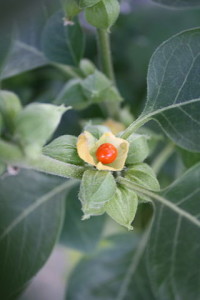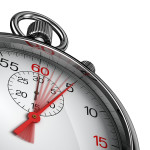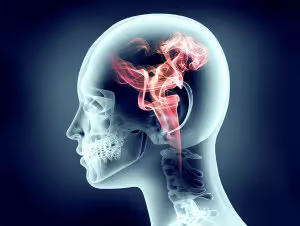Table of Contents
Ashwagandha (Withania somnifera) is one of the most powerful herbs powerful Ayurvedic herbs in healing. One of the main benefits of Ashwagandha is its remarkable stress-relieving properties. And stands shoulder to shoulder with some of the most potent drugs used to treat depression and anxiety.
In Sanskrit, Ashwagandha means “smell of horse”. Meaning this herb imparts the strength and vigor of a stallion.
Ashwagandha is native to India, Pakistan and Sri Lanka. And is now being grown in other regions including the United States.
Ashwagandha extracts helps protect your central nervous system and maintain brain health. It is a promising alternative for aging and neurodegenerative pathologies treatment including Alzheimer’s and Parkinson’s.
As an antioxidant, Ashwagandha seeks out and destroys free radicals. Free radicals have been implicated in many age-related diseases. There’s even some emerging evidence that Ashwagandha offers anti-cancer benefits
for brain tumors. Even though so much is out there stating that the active principles and underlying molecular mechanism (s) remain largely unknown for this ancient Ayurvedic herb.
Get ready to explore how Ashwagandha benefits your brain because we will go as deep as possible.
Ashwagandha helps:
- Reduce Stress: Ashwagandha helps reduce anxiety and depression. It reduces the stress hormone cortisol, lowers blood sugar levels, and improves lipid profiles.[i]
- Neuronal Regeneration: Ashwagandha helps regenerate axons and dendrites of brain nerve cells. And helps reconstruct synapses, the junctions where nerve cells communicate with other cells.[ii] Boosting memory and restoring neural networks affected by neurodegenerative disease.
- Neurotransmitters: Ashwagandha extract inhibits acetylcholinesterase. The enzyme responsible for breaking down the key neurotransmitter acetylcholine.[iii] Boosting memory, learning and cognition.
What is Ashwagandha?

Ashwagandha (Withania somnifera) is one of the most powerful herbs in Ayurvedic healing. This Indian traditional home medicine as an herbal remedy has remarkable anti-depressant qualities. And has been shown to be as good as many prescription pharmaceuticals in treating depression and anxiety.
Ashwagandha is often referred to as “Indian ginseng” because of its rejuvenating properties. But botanically, Ashwagandha and ginseng are unrelated.
Native to India, Pakistan and Sri Lanka. Ashwagandha is now being grown in other regions including the United States.
Ashwagandha is in the same family as the tomato. It’s a small woody shrub with oval leaves, and five-petal yellow flowers. The fruit is red and the size of a raisin. The plant is also known as the “Winter Cherry”.
Ashwagandha is known as an adaptogen. Which means it helps your body adapt to stress, both mental and physical.
The Indian Materia Medica lists Ashwagandha for:
- general debility
- impotence
- general aphrodisiac purposes
- brain fatigue
- low sperm count
- nervous exhaustion
- where general vigor must be restored.
Ashwagandha extract has been shown to be an effective antioxidant in the brain. Clearing the cellular waste implicated in Alzheimer’s Disease.[iv]
Is also boosts memory and cognition. By reducing stress and increasing acetylcholine. And regeneration of nerve networks in the brain.
How does Ashwagandha Work in the Brain?
Ashwagandha boosts brain health and function in several ways. But two in particular stand out.
- Ashwagandha enhances GABA receptors and regulates serotonin in the brain. It appears to work on neuron receptors, enabling GABA to connect easier. This inhibits the signals present under a stress response in the brain. Anxiety is reduced.
A study was conducted at The Canadian College of Naturopathic Medicine with 75 volunteers with moderate to severe anxiety. Ashwagandha produced a significant decrease in anxiety levels over the control group.[v]
- Ashwagandha improves cognitive and psychomotor performance in a healthy brain.
Researchers at Nizam’s Institute of Medical Sciences in Hyderabad, India worked with 20 healthy male volunteers. In this double-blind, placebo-controlled trial participants were given 250 mg capsules of standardized Ashwagandha extract for 14 days.
Significant improvements in reaction time were reported at the end of the trial. The study suggests that Ashwagandha extract improves cognitive and psychomotor (physical reaction) performance even when you’re in the best of health.[vi]
How things go bad
Chronic stress and cortisol can damage your brain. Neuroscientists at the University of California, Berkeley found that chronic stress triggers long-term changes in brain structure and function.[vii]
Chronic stress changes neural networks. Cortisol creates a domino effect that hard-wires pathways between the hippocampus and amygdala. (The amygdala (lizard brain) is the area responsible for your fight-or-flight response).
This hard-wiring caused by stress is not the way the brain was designed. But chronic, ongoing stress tricks the brain into rebuilding circuits and hunkering down for the long haul.
This re-wiring appears to be permanent. Unless you intervene with something like Ashwagandha.
 Chronic stress seems to ‘flip a switch’ in stem cells in the brain. And turns them into a type of cell that prevents connections to the prefrontal cortex. Preventing improved learning and memory.
Chronic stress seems to ‘flip a switch’ in stem cells in the brain. And turns them into a type of cell that prevents connections to the prefrontal cortex. Preventing improved learning and memory.
And laying down the scaffolding linked to anxiety, depression and PTSD (Post Traumatic Stress Disorder).
↓ Chronic stress coats neurons in myelin
↓ Chronic stress reduces the number of neurons
↓ Gray matter decreases and white matter increases.
Under conditions of chronic stress and excess cortisol, your brain’s neurons are coated (or sheathed) in myelin.
Under healthy conditions this “sheathing” is a protective measure. But this excessive sheathing is likely an evolutionary measure made to reinforce the connection between the hippocampus and amygdala. Improving the fight-or-flight response during extended periods of threat or attack.
In the modern world, chronic stress hijacks your fight-or-flight response system. It backfires in daily life in which you are not in physical danger.
Ashwagandha benefits
Ashwagandha undoes damage to the brain caused by chronic stress. And helps keep it healthy.
Ashwagandha has such beneficial activities for cognitive function. Glycowithanolides, one of the many compounds found in Ashwagandha, reduces cortisol. And overall energy levels are enhanced through optimizing mitochondrial function.
It also has GABA-mimicking effects in the brain. Comparable to the effects of prescription benzodiazepines like lorazepam (Ativan).
Ashwagandha can also help prevent and repair damage caused by Alzheimer’s, Parkinson’s and Huntington’s disease. Through its antioxidant and inflammation-reducing mechanisms.
Ashwagandha even provides protection and regeneration of neurons during opiate and heroin withdrawal. And eases withdrawal symptoms.
 In Ayurvedic medicine, Rasayana herbs are used to promote a youthful state of physical and mental health. The ancients considered Medhya Rasayana herbs to be working with higher brain function. These are mind-rejuvenating herbs.
In Ayurvedic medicine, Rasayana herbs are used to promote a youthful state of physical and mental health. The ancients considered Medhya Rasayana herbs to be working with higher brain function. These are mind-rejuvenating herbs.
Of the 8 or 9 most cherished herbal remedies, Ashwagandha is the highest or most prominent of Ayurvedic Rasayana herbs. Acting as an adaptogen, rejuvenating the nervous system, and boosting the body’s resilience to stress.
How does Ashwagandha feel?
Ashwagandha users report:
-
- Ashwagandha as a stress-reliever. If you are experiencing severe fatigue and brain fog, it’s likely stress. Chronic or severe stress can disguise itself in many ways. Including feeling abnormally fatigued. You find that you are not sleeping well. Or don’t feel rested and refreshed when waking up in the morning. Even after taking a sleeping pill. Many report a rapid change in energy and motivation as soon as they take Ashwagandha. Others won’t feel the effects for a couple of weeks before relief sets in. You’ll know Ashwagandha is working when you wake up in the morning feeling refreshed. And eagerly looking forward to starting your day.
-
- Ashwagandha as an anti-anxiety aid. As an anti-anxiety aid users say they feel their self-confidence has been restored. Your speech will feel more fluid and easier, especially in public settings. No more panic attacks.
- Ashwagandha as an antidepressant. Depression, even if it’s not professionally diagnosed, can destroy your life. Ashwagandha users say it is the best antidepressant they’ve ever used. Their energy is restored, motivation is back, and they’re able to focus.
Ashwagandha works on many levels in the brain. Cortisol levels are stabilized. And the damage to your brain begins to correct itself. Acetylcholine levels rise so you’re able to think clearly again.
Neurons get repaired, and cognition and memory return to levels you experienced when you were younger. And GABA receptors are re-activated producing a calming effect.
Ashwagandha Clinical Research
Researchers at Asha Hospital in Hyderabad, India did a double-blind, randomized, placebo-controlled trial with 64 subjects who had a history of chronic stress. The study group took a 300 mg capsule of full-spectrum Ashwagandha root twice a day for 60 days.
Follow up calls to participants were done on the 15th, 30th, 45th and 60th day of the trial. Researchers reported serum cortisol levels were substantially reduced.
 The report concluded “that a high-concentration full-spectrum Ashwagandha root extract safely and effectively improves an individual’s resistance towards stress and thereby improves self-assessed quality of life”.[viii]
The report concluded “that a high-concentration full-spectrum Ashwagandha root extract safely and effectively improves an individual’s resistance towards stress and thereby improves self-assessed quality of life”.[viii]
Ashwagandha as a nootropic
One study done in a lab in India subjected laboratory mice to electroconvulsive shock treatment. Or were given scopolamine to induce amnesia (memory loss).
Both sets of mice were given Ashwagandha extract daily after the shock or chemical treatments. Ashwagandha extract restored their memory and motor skills.[ix]
Ashwagandha as an antidepressant
Scientists did a study on rats to compare Ashwagandha with the popular benzodiazepine antidepressant lorazepam (Ativan). And the tricyclic antidepressant imipramine (Tofranil).
Researchers gave the rats either Ashwagandha, lorazepam or imipramine. 30 minutes later they put the rats through a maze, had them interacting socially, and even forced them to swim.
They concluded that as a mood stabilizer, Ashwagandha worked on depression and anxiety as well as either of the two antidepressants.[x]
Ashwagandha Dosage
Ayurvedic Pharmacopoeia of India recommends 3 – 6 grams daily of standard ground Ashwagandha powder.
- For arthritis: 250 – 500 mg of extract (4-5% withanolides)
- For antioxidant protection: 100 – 200 mg of extract (4-5% withanolides)
- For immunity: 100 – 200 mg of extract (4-5% withanolides)
- For relaxation: 250 – 500 mg of extract (4-5% withanolides)
- For stress: 250 – 500 mg of extract (4-5% withanolides)
- For sexual performance: 250 – 500 mg of extract (4-5% withanolides)
For higher Ashwagandha doses like 500 mg, take 250 mg in the morning and another 250 mg early afternoon. And note the distinction between standard ground Ashwagandha powder and an extract. The extract is much more concentrated.
Ashwagandha Side Effects
Note: Ashwagandha stimulates your thyroid hormones. So if you are hypothyroid, use Ashwagandha with caution. And check with your endocrinologist to be safe.
Ashwagandha is non-toxic at moderate doses. If you are pregnant do not use Ashwagandha as it could cause a miscarriage. This herb is an adaptogen with powerful hormonal effects.
Ashwagandha can enhance the effects of sedatives, antidepressant and anti-anxiety medications, including St. John’s wort.
It can also interact and possibly amplify the effects of immunosuppressants, blood pressure medication, and drugs used to control blood glucose levels.
Ashwagandha can boost the effects of alcohol. And do not use Ashwagandha if you have bleeding issues, or before surgery.
Other possible side effects include diarrhea, nausea, abdominal pain, drowsiness and slowed pulse. Ashwafandha anhedonia may also occur when you feel flat or emotionally numb.
And you should not use Ashwagandha if you are dealing with kidney or liver disease. A study published in 2023 and which was conducted in India found those with preexisting liver disease and who used Ashwagandha from only 2 weeks to 1 1/2 years suffered liver injury. 3 suffered liver failure and died.
Where to buy Ashwagandha
Ashwagandha is available as a powder, capsules, tincture and tea. The root and berry of the plant are used. The ground root of the herb is used as the base of an Ashwagandha supplement.
Active ingredients of Ashwagandha include alkaloids, saponins, and withanolides. Look for the percentage of active ingredients listed on the bottle or package. Typically, you’ll see something like “standardized to 4-5% of withanolides”.
NOTE: This post contains affiliate links, and I will be compensated if you make a purchase after clicking on my links.
A good choice of Ashwagandha extract is KSM66® which is a full spectrum root extract made by Ixoreal, a division of the Baldwa group of companies in India. This extract contains 5% withanolides and less than 0.1 Withaferin A (which is toxic).
You can buy it here: Click for Pure Nootropics – Ashwagandha (KSM66®)
Nootropics Expert Recommendation
Ashwagandha Extract 250 – 500 mg per day
 I recommend using Ashwagandha as a nootropic supplement.
I recommend using Ashwagandha as a nootropic supplement.
Your body does not make Ashwagandha on its own. So to get its benefits you must take it as a supplement.
Ashwagandha is especially helpful for those suffering from anxiety and stress. Studies show it helps stop and reverse the devastating effects of stress on your brain, and body. This nootropic helps repair the damage to neurons and synapses caused by chronic stress.
Ashwagandha is a powerful adaptogen. Which means it helps increase the effect of certain hormones when activity is low. And will block excess stimulation when activity is too high.
The benefits of Ashwagandha as an adaptogen helps balance cortisol in the body caused by chronic stress. Chronically elevated cortisol levels suppress immunity, create fat deposits on the belly, face and neck, reduces libido, causes bone loss, causes insulin resistance, and brain fog.
Balancing cortisol levels with Ashwagandha improves your sleep quality, immunity, stress response, organ function, reduces fatigue, and brain fog.
Ashwagandha is also helpful for those suffering from anxiety and panic disorders. A study published in Phytomedicine showed the calming effect of this herb was equal to the drug Ativan (lorazepam). Without the side effects.
You can safely take up to 750 mg of Ashwagandha extract daily if needed. Most get all the benefit they need with 500 mg. Dosed 250 mg in the morning, and another 250 mg early afternoon.
You can buy it here: Click for Pure Nootropics – Ashwagandha (KSM66®)









Join The Discussion - 506 comments
Rembrandt
December 28, 2020
Hello,
I just started taking:
Ashwagandha – 600 mg (KSM-66) [300 mg, twice a day]
Creatine Monohydrate – 5 g (Creapure)
L-Theanine – 200 mg
Caffeine – 100 mg (Instant Coffee)
Do you see any potential problems with this combination?
I already consume every day:
Turmeric (with Black Pepper)
And I take:
DHA
B12
D3
Zinc
Iodine (Kelp)
(*I also ordered Rosemary, Peppermint, Lemon, and Sweet Basil essential oils, which I plan to diffuse. I already use Lavender at night.)
I’m on a plant-based diet (beans, whole grains, fruits, vegetables, nuts, seeds, mushrooms, spices, etc.).
I have mild Autism, OCD, and anxiety. My primary goal is to improve focus and learning for returning to school (college online) as an adult. I also fear the essay writing. My intelligence is above average, but I struggle with generating words.
I’m looking to take only the very safest supplements. I’m also on a budget.
With all of my details in mind, is there any weakness in my “stack”? Is there any significant component missing?
Thank you
David Tomen
December 30, 2020
Rembrandt, you should also use a high quality B-Complex because Caffeine forces the elimination of your B-Vitamins.
I also suggest doing a search of Nootropics Expert using the search function top right of the top main menu and search for OCD.
For focus and memory you are definitely missing nootropics. Please see this article for more:https://nootropicsexpert.com/how-to-improve-memory-and-concentration/
Anxiety is much more difficult to treat because you first need to determine the cause of your anxiety. That then dictates which nootropics are best for your unique issues.
You can do more reading on anxiety by reading this: https://nootropicsexpert.com/best-nootropics-for-anxiety/ and this: https://nootropicsexpert.com/top-7-nootropic-adaptogens-to-conquer-anxiety-and-stress/
Autism is more of a challenge and I suggest scheduling a consultation with me for autism. Or any of the issues you’d like help with.
Rembrandt
December 30, 2020
Thank you for the reply.
I will read more about the B vitamins and your other suggestions. Thank you!
You linked to the Memory and Concentration page. There are eight items mentioned there for memory. I am taking four of them: Ashwagandha, L-Theanine, DHA, and Turmeric.
For concentration, one of the supplements listed there is Rhodiola Rosea. Would it be safe to take with everything else I am taking (Ashwagandha, Creatine, L-Theanine, Caffeine, DHA, Turmeric, B12, D3, Zinc, and Iodine)?
(I know there are more-potent options than the ones I have chosen, but for now, I am looking to take only the safest ones, even if the benefits are less-pronounced.)
Thank you
David Tomen
December 31, 2020
Rhodiola Rosea is safe to add to your stack.
I think you’ll get more benefit by adding a choline supplement such as Alpha GPC or CDP-Choline. Acetylcholine is associated with concentration and memory.
And so is dopamine. Consider also adding L-Tyrosine.
Rembrandt
January 3, 2021
Thank you. I have updated my plans after considering your advice and after reading more on your website and others. Here is what I am thinking now:
Ashwagandha – 600 mg (KSM-66) [300 mg, twice a day]
Bacopa Monnieri – 450 mg (40% Bacosides)
Lion’s Mane – 500 mg
Citicoline – 250 mg
L-Tyrosine – 166-250 mg
Creatine Monohydrate – 5 g (Creapure)
Multivitamin with B vitamins, etc.
Caffeine – 100-200 mg
L-Theanine – ?*
(+ Turmeric, DHA, and Essential Oils)
(*I tried 200 mg of L-Theanine for a few days, but it gave me a mild headache each day. 100 mg did the same. It was a cheap brand (Nutricost), however, so I will try a better one before I give up on it. From what I read, headaches are the one side effect L-Theanine can have. I’m not prone to headaches, and I don’t have a problem with tea, but that has less L-Theanine, of course.)
– In some comments on the site, you recommended lowering the dosage of certain adaptogens when combining them. Is mine too high for combining?
– There is a Donate page on your website (“How You Can Support Our Mission”). It mentions donate buttons, but I don’t see any.
Thank you
David Tomen
January 4, 2021
Rembrandt, thank you for the heads-up on the Donate buttons. Something went wonky over the last few days with my shopping cart software and buttons either stopped working or disappeared altogether. It’s not something I normally check. So much appreciated. I’ll look into this afternoon.
Your stack looks OK as long as it works for you. We use twice as much L-Theanine as caffeine because it suppresses the increases in cortisol caused by caffeine consumption. And L-Theanine makes more dopamine available in your brain which was lowered by using caffeine.
But Ashwagandha also lowers cortisol levels. And if you increase L-Tyrosine to 500 mg you’ll make up for what caffeine hijacked. Along with your B-Complex supplement.
Pavaman
December 28, 2020
Hi David,
Is Ksm 66 better in terms of potency when compared to other extracts?
David Tomen
December 28, 2020
Pavaman, KSM-66 is standardized extract to 5% withanolides from the full spectrum root of Ashwagandha. It’s based on what available naturally from Ashwagandha. And has a lot of research studies backing its use.
Sensoril is standardized to 10% withanolides from Ashwagandha root and leaves. It also has quite a bit of clinical research backing its use.
I suggest trying each one for a month to compare them and see which one works best for you.
Pavaman
December 23, 2020
Can post menopausal women take Ashwagandha?
David Tomen
December 23, 2020
Pavaman, yes you can. The reported benefits of Ashwagandha for post menopausal women include improvements in hot flashes, sleep problems, and effects of inflammation. And better orgasm, satisfaction, lubrication, and arousal.
But be careful if you are being treated for hypothyroidism because Ashwagandha will increase TSH and T3.
Ann
December 14, 2020
Hi David,
Will you be able to advice me on one or two herbs I can start with for memory loss? I see a lot listed here and I am genuinely confused and not sure which one to start with. I find it increasingly difficult to remember everyday words and names I use often. I am very scared as it seems to be getting worse everyday and I am still in my early forties. I currently take Wellwoman and Equazen(DHA and EPA) tablets daily and have been taking them for over two years now but I see no improvement. Your help is greatly appreciated. Thank you!
David Tomen
December 15, 2020
Ann, great question and Ashwagandha is one of them. But you have many more to choose from. And I can’t choose for you without knowing more about you.
So I suggest you go to this article: https://nootropicsexpert.com/best-nootropic-herbs/. Look through all 15 herbs on that page. And click through to any that resonate with you. But please, please, check the Side Effects section for each supplement. Because many of them are contraindicated with any meds you may be using.
Another article I highly recommend you read and take to heart is the one on “aging”. I know, I know, you’re not that old! But the thing is our brains start to decline starting in our 20’s. But you can put a stop to and reverse many of the causes of brain aging. By using nootropics. You’ll see how on this page: https://nootropicsexpert.com/best-nootropics-for-the-aging-brain/
Ann
December 15, 2020
Thanks a lot, David!
Just took a look at one of the articles. Very informative. There’s a lot to learn about the brain – hoping I still have a chance to revert the decline in my memory.
Your website is truly a wealth of knowledge and I appreciate the time you took to respond to my message. Keep up the good work!
Andrea
November 12, 2020
Hi David!
Congratulations on the site and thank you for sharing this knowledge.
I have read that Ashwagandha should not be taken for more than 3 months but in this section there is no reference to this precaution, so I am perplexed, are there any restrictions on the timing of taking Ashwagandha?
Thanks
David Tomen
November 13, 2020
Andrea, if you are using the recommended dosage and do no have thyroid problems there is no reason to stop using Ashwagandha. Don’t believe everything you read on the internet. Especially if they do not include clinical references.
Some blogger at one point probably made that statement and it’s been copied by every other blogger since. Except me. 🙂
Andrea
November 14, 2020
LOL maybe that’s how it went! I trust your opinion and so on because I’m removing these doubts thanks to you.
Is it possible to take Ashwagandha together with Bacopa Monnieri?
Thanks David
David Tomen
November 14, 2020
Andrea, yes, you can take them together as long as you follow dosage recommendations.
Baba
November 3, 2020
Hello David!
I hope you could help me to have a clearer view on my situation…. cause im becoming tired of searching and testing in vain.
A few years ago (about 3), when I discovered fasting and a better lifestyle, my mind has litteraly awakened to a god state : I had access to almost prefect memory, got completely rid of my social timidity, and was becoming the man I wanted to be.
But it lasted no more than a month, after which my cognitive abilities started to decline slowly, to get back to the starting point….and even wa(aaaaaa)y worse before I begin to equilibriate my bad vegan diet (It was a mistake I admit, now problem is solved and I’m steady since a year)
Today, I’d say im at maybe 60-70% of what I experienced : it is good enough to be able to study (not major of promotion though), but I still have a tendancy to social avoidance and executive fonctions problems with high cognitive reasonning being difficult to reach (short term memory often wont hold so it reduces the “mental working space”)
I spend the last year trying many types of nootropics and complements, and there is one thing that I noticed with Ashwagandha : when I take a pill before bed (500mg), I wake up the next morning with 2 hours less sleep than usual and feeling really refreshed.
The following day is usually a good day where I have improved memory and executive skills, and therefore less social fears.
Ash is the one that gets me the best results.
But it never last more than this day, even if I take 500mg pills again before bed, it will not work anymore till I stop for a very long time.
I can’t see the reason behind this.
I react badly to things dealing with acetylcholine which makes me really dizzy and irritable (tried noopept with alpha GPC, huperzine A, and alpha GPC alone).
I also noticed increased serotonin tends to make my social timidity worse, it makes me wanting to go on total social isolation.
Tried Bacopa, 5-HTP, gingko, and rodhiola (not all together, one at a time of course)
Im out of ideas…. do you have some?
Thanks and sorry for the big message :/
David Tomen
November 4, 2020
Baba, Ashwagandha inhibits acetylcholinesterase which increases acetylcholine. And it increases levels of serotonin in your brain as well. Both neurotransmitters you say you have a problem with raising. So it sounds like ashwagandha is simply the wrong supplement for you.
What exactly do you need help with? Maybe I can point you to something else to try.
Baba
November 5, 2020
Hello,
Yes sorry If it was unclear with that too big message.
In short, 1 dosage of ashwagandha (500mg evening) give me exellent results on executive skills, memory, and general mood/energy.
But it never last more than a day, and I have to stop it for like a week before I can have such an effect again.
So I was wondering if you could tell me why does it stops like that ?
And maybe give me another lead than ashwagandha to try. (Thats why I gave you my reaction to other nootropics Ive tried)
I would love to be in that state everyday x)
David Tomen
November 5, 2020
Baba, you need to look at the detailed view of how Ashwagandha works in your brain. And that may provide a hint on what you are looking for.
For example, Ashwagandha reduces cortisol, increase nerve growth factor, boosts GABA, acetylcholine and serotonin. So something in there temporarily helped you before it got stopped by who know what.
I suggest trying separate supplements that apply to each benefit. For example, L-Theanine (reduces cortisol), Lion’s Mane (increases Nerve Growth Factor), Lemon Balm (boosts GABA), and L-Glutamine (boosts GABA and reduces L-Glutamate).
See my review for each of those and try a high quality but lower dose of each supplement. And see what happens. That’s the only way to reverse engineer what has happened to your experience with Ashwagandha. Maybe you’ll hit on a winner. If not then report back and we’ll try something else.
Baba
November 6, 2020
Okey I will try that thank you!
I was going to try L-theanine anyway, I have an order set since yesterday ^^
Sven
October 15, 2020
Hello David,
What is your opinion on this stack?
Omega3(DHA&EPA), L-Theanine + Caffeine, Ashwagandha (KSM-66), Rhodiola Rosea, B-complex, Vitamin D3, NAC, 5htp, and I get enough Tyrosine, Magnesium, Alpha-GPC and choline from food. Do you recommend adding or removing something from it? Are there any errors or potential risks you see in this stack? I am still kinda new to nootropics and would greatly benefit from an opinion of someone who has studied nootropics for a long time.
Thank you!
David Tomen
October 16, 2020
Sven, a couple of things…
Depending on what your intentions are for this stack I don’t see any good reason to include 5-HTP. It’s a direct precursor to the synthesis of serotonin. And will counter want you are trying to accomplish with L-Theanine + Caffeine.
And can you tell how much Tyrosine, magnesium, and Alpha-GPC you get from food? Do you have some way to test everything you eat?
I ask, because years of research into our food supply shows that these nutrients are a fraction of what they once were for a variety of reasons. And it’s why we have a multi-billion dollar supplement industry that didn’t exist 50 years ago.
Tabatha
October 7, 2020
I just started taking Neocell Ashwagandha that has ksm 66 in it. I’m taking it in the mornings for an energy boost and I enjoy it so far. My question is can I have a glass of red wine with dinner a few days a week if I’m taking one of these in the mornings? It’s something I’ve always done and I’d hate to make myself sick. I take no medications or other supplements. I have no health problems that I’m aware of.
David Tomen
October 9, 2020
Tabatha, I am not aware of any contraindication between Ashwagandha and red wine. So I think you’re good. 🙂